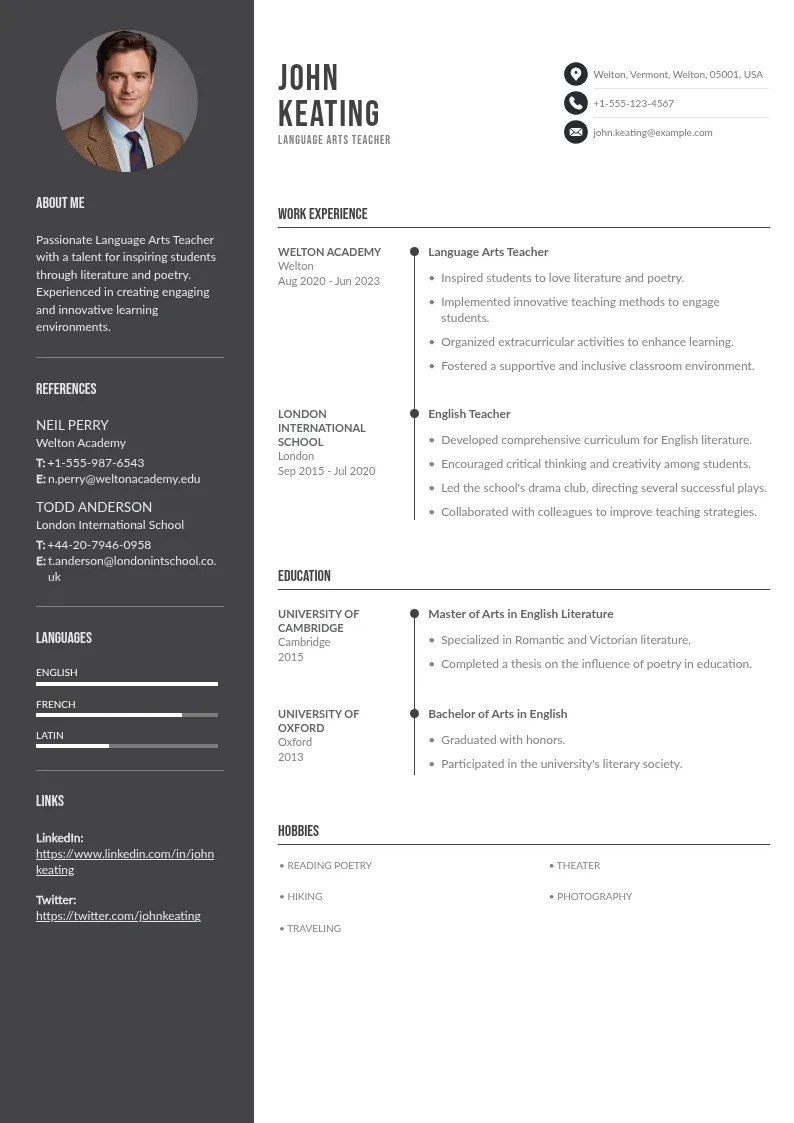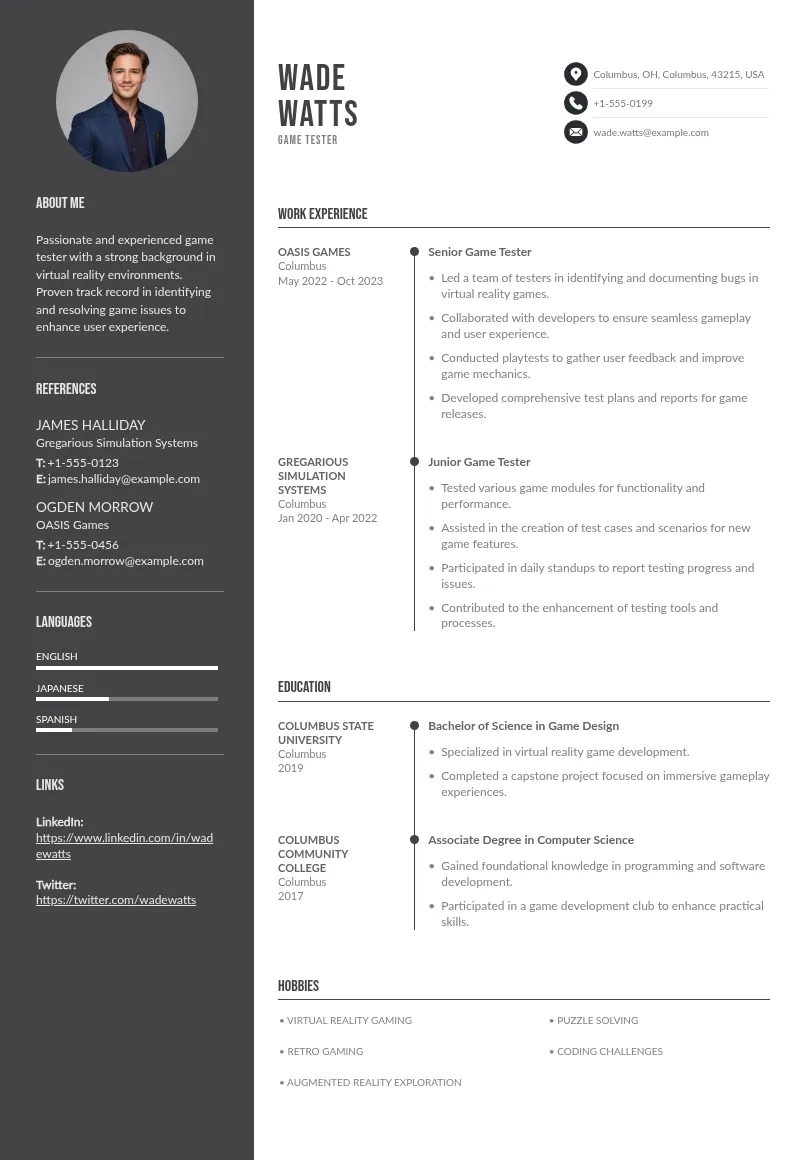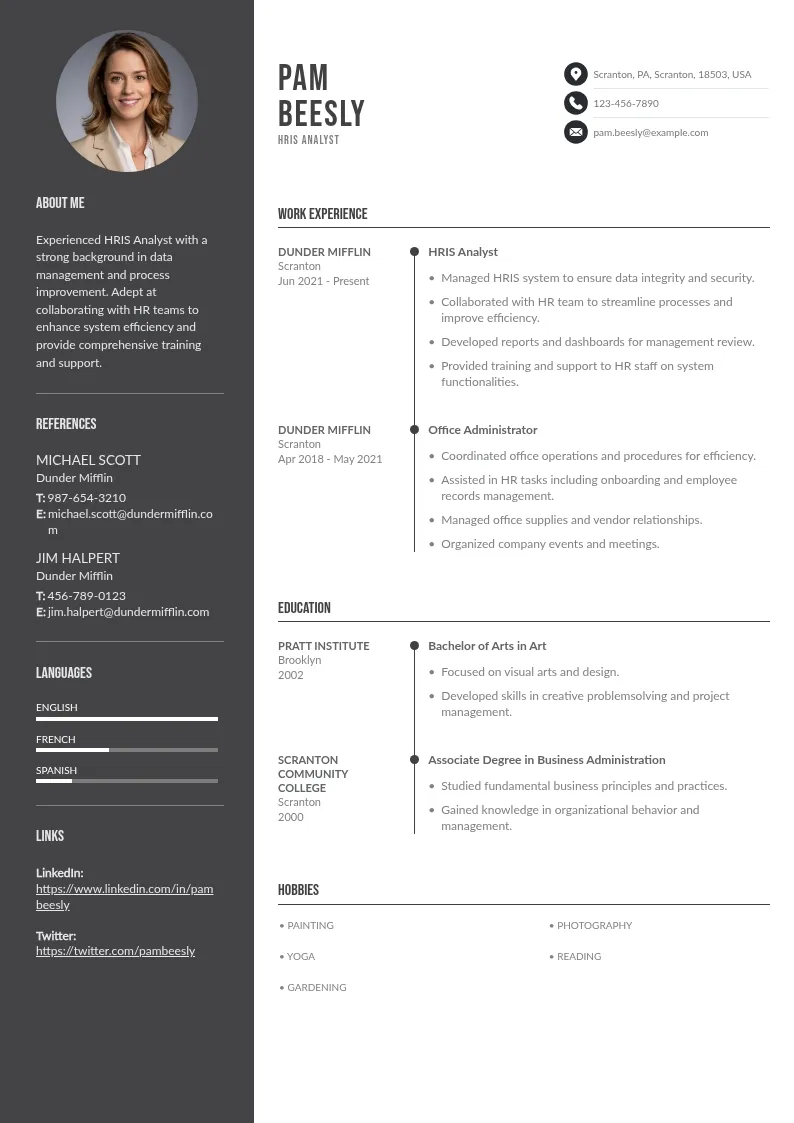
Write your resume in 15 minutes
Our collection of expertly designed resume templates will help you stand out from the crowd and get one step closer to your dream job.


In this guide, we'll unpack what short and long interviews might actually mean for your chances, clear up some myths, and help you focus on the signs that truly matter.
What a Short Interview Might Mean
Short interviews can feel brutal. You start wondering if they lost interest, or if you tanked it without realizing. But before you spiral, let’s break down what a shorter-than-expected job interview might actually signal, usually anything under 20 to 25 minutes.

1. Some interviews are designed to be short
Screening interviews are built to move fast. They’re meant to filter out candidates who clearly don’t fit the job description, not to dig deep. A short call here isn't a red flag, it’s just step one in the hiring process.
2. They already had enough information
If you’ve got a solid resume and the interviewer saw everything they needed upfront, the conversation might have been more of a formality. Some hiring managers move quickly when they’re already leaning one way. This can be a good sign if they’re confident you’re the right candidate.
3. It didn’t go well, but there are other factors
Yes, sometimes a short interview means they’re not interested. Maybe your answers didn’t land, or you weren’t what they expected. But other factors matter too, like how many candidates they’re seeing or how tight their schedule is that day.
4. Keep an eye on what actually happened
Short interviews aren’t always bad, just like long ones aren’t always good. Watch for real signs like verbal cues, engagement, and next steps. The time on the clock isn’t what gets you the job offer.

What a Long Interview Might Mean
Long interviews can leave you feeling hopeful, exhausted, or somewhere in between. When a job interview stretches past the 45-minute mark, it might seem like a good sign, but it’s not always that simple. Let’s break down what a longer interview could actually tell you.
1. They’re interested, and digging deeper
If the hiring manager is asking thoughtful, specific follow up questions, that’s a solid sign. They might be trying to get a better sense of your skills, personality, and potential job performance. Long doesn’t guarantee a job offer, but it often means you’re being seriously considered.
2. It’s just how they run their process
Some companies build structured interviews that are naturally longer, especially when they follow a list of required interview questions. In technical interviews or later stages, you could be walking through scenarios, solving problems, or meeting with a hiring committee. None of that confirms anything, it’s just part of the selection process.
3. You did well, or they just talk a lot
Sometimes, a long interview means things clicked. Other times, it means your interviewer really, really likes to explain things. If it felt like a conversation instead of an interrogation, that’s worth more than the time on the clock.
4. Look at the energy, not the minutes
Were they engaged? Did they give you details about the position, workplace culture, or next steps? Those cues matter way more than dragging the interview past the hour mark.

What Really Affects Interview Length?
The length of your interview doesn’t exist in a vacuum. It’s shaped by how the company runs its recruitment process, the type of interview you’re in, and who’s sitting across from you. So before you assume short means rejection or long means a job offer, let’s break down the real variables.
Stage of the Interview Process
Interviews tend to get longer the deeper you go into the process. Early calls are often meant to weed people out, not dive deep.
- First interviews: These are often screening interviews focused on basic qualifications, salary expectations, and availability. They usually last 15 to 30 minutes.
- Later stages: These involve more structured interview questions, culture-fit assessments, and often include multiple interviewers. You could be there for an hour or more, especially if you’re moving toward a final decision.
The point is, time tends to stretch when stakes get higher. It’s not a performance review, it’s just part of how the hiring process is built.
Type of Interview You’re In
The format can heavily influence how long things take, no matter how well you answer.
Common Interview Types and Their Usual Timing:
- Screening interviews: Quick checks for job requirements and resume alignment. Often under 30 minutes.
- Video interviews: Some are live, some are pre-recorded. Pre-recorded ones are usually shorter and feel less interactive.
- In person interviews: Typically more involved, especially when you're meeting with several people in one visit.
- Technical interviews: These take longer by design. You may be solving problems or coding live, which adds time.
- Panel interviews: Multiple interviewers asking questions in turns. These can run over an hour, especially in senior roles.
- Unstructured interviews: These follow no strict format and can drag or end quickly depending on the interviewer’s mood and style.

The more complex the interview type, the more time consuming it gets. It’s not about you taking up space, it’s about the format doing its thing.
Style and Personality of the Interviewer
This one’s a wild card. Some interviewers are quick and efficient, while others will talk your ear off and then call it “rapport building.”
- Structured: Follows a set list of questions, usually designed by HR or the hiring committee. These interviews have a timeline and tend to stay on track.
- Unstructured: More conversational and open-ended. These interviews can feel casual, but they’re harder to predict and often run longer.
If your interviewer seemed engaged but kept things short, that doesn’t mean anything went wrong. It might just be how they run things.
Number of Questions and What They’re Looking For
When interviewers need to cover a wide range of competencies; technical skills, behavioral traits, culture fit, the interview takes longer. Especially if it's a structured interview designed to assess candidates fairly across the board.
They might need to ask:
- Behavioral questions: “Tell me about a time when…” style.
- Background questions: Education, past roles, gaps in employment.
- Follow up questions: Based on your answers, to dig deeper into your experience.
Number of Applicants and Scheduling Pressure
Hiring managers don’t live in a vacuum either. Sometimes the interview length is dictated by how many other candidates they’re meeting or how packed their calendar is.
- Few candidates: They may take more time with each person.
- Multiple applicants: If the day’s fully booked, they might cut things short to stay on schedule.
- Hiring committee structure: When multiple managers are involved, interviews may be broken into segments or back-to-back sessions.
What’s the Average Interview Length, Anyway?
Most job interviews fall between 30 and 60 minutes, but the timing depends on the role, the stage, and the interviewer. A quick screening interview might wrap in under 20, while a structured interview could take longer to cover all the required points. There’s no fixed standard across the hiring process.
Some hiring managers keep it efficient, others drag things out. The interview length alone doesn’t tell you much without context. It’s just one piece of the selection process, and not the most reliable one.

How to Tell If the Interview Went Well or Not
Interview length alone won’t tell you much. To get a better read, pay attention to how the conversation flowed, how the interviewer responded to you, and what was said about next steps.
What Usually Signals a Good Interview
- They asked follow up questions based on your answers. That shows they were engaged and wanted to hear more, not just checking boxes in a structured interview.
- You were asked about your availability or notice period. That usually means they’re already imagining you in the role and thinking about logistics.
- They explained the next steps without you needing to ask. Interviewers rarely do that unless they’re seriously considering moving you forward in the hiring process.
- They connected your experience directly to the job. If they said something like “That’s exactly what we’re looking for,” they weren’t just being polite, they were interested.
- The conversation flowed naturally, even if it followed a structured format. When it feels more like a discussion than an interrogation, you’re doing something right.
- They introduced you to someone else on the team. Even a quick intro can mean they see you as a potential fit and want a second opinion before making a final decision.
- You got clear, thoughtful answers to your own questions. If they’re being open about the position, the team, or workplace culture, that usually means they’re taking you seriously.
What Might Point to a Miss
- The interviewer stuck rigidly to a script and didn’t engage beyond it. If there were no follow up questions or side comments, they might not have seen a strong fit.
- They ended the interview earlier than expected without a real reason. A quick wrap-up can sometimes signal that they’ve already made up their mind.
- Your questions were answered vaguely or avoided altogether. That’s usually a sign they’re not invested in building trust with someone they don’t plan to hire.
- There was little energy or interaction during the interview. Think long pauses, minimal reaction to your responses, or body language that felt closed off.
- They didn’t mention the next steps or timeline at any point. That silence often means you won’t be moving forward in the selection process.
- They didn’t ask anything about your availability, start date, or interest in the role. If they’re skipping those details, they’re likely not prioritizing you among other candidates.

Conclusion
Interview length is one of the loudest distractions in the whole hiring process. It’s easy to overanalyze, but the truth is, it rarely tells the full story. What matters more is how you showed up, how the conversation felt, and what came next. Don’t let the stopwatch decide your worth, focus on the substance, not the minutes.

















